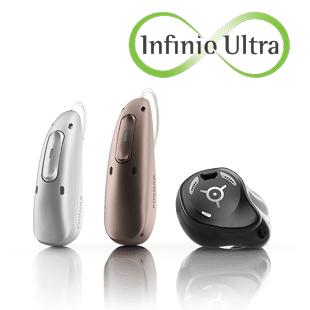
Exploring AI chatbots in audiology: What do users really think?
Can artificial intelligence offer real-time support between audiology appointments? In a recent exploratory study, we tested a prototype chatbot designed to do just that.
With digital health tools rapidly gaining traction across healthcare, audiology is beginning to explore how artificial intelligence (AI) might support people with hearing loss between appointments.
In our latest exploratory study, we investigated the usability and desirability of a prototype AI-driven chatbot designed to provide just-in-time support for adults with hearing loss. The chatbot was built using GPT technology, embedded in a simple mobile app and trained on over 100 pages of audiologist-reviewed content, including troubleshooting tips, common hearing aid issues, and curated links to trusted external resources.
Ten participants with hearing loss tested the chatbot over two weeks, and their experiences provided a wealth of insight into how these tools might complement traditional audiological care.
What questions did people ask?
Participants used the chatbot to ask about a wide range of topics including: hearing aid issues, Bluetooth streaming issues, tinnitus, finding audiologists in rural areas, and cochlear implants.
Their questions showed a clear desire for support in navigating everyday hearing challenges, and the chatbot’s answers were reviewed and rated as accurate by two independent audiologists.
What did people like?
Overall, participants found the chatbot intuitive, easy to navigate, and emotionally supportive—particularly those who were new to using hearing devices. One participant described the chatbot as “a safe space,” explaining that they could ask questions “without the fear of embarrassment or judgment.”
Another participant said, “That was like, oh good, I’ve got some information that I trust,” after using the chatbot to weigh up battery versus rechargeable hearing aids.
Others noted how the chatbot’s explanations helped make complex topics easier to understand. For example, one person appreciated how it explained the difference between PET and MRI scans as they relate to cochlear implants: “It was just so clear, I actually understood it for the first time.”
Importantly, the chatbot also helped some users feel more connected and supported. One participant described it as “comforting, like someone’s there to help, even late at night when the clinic’s closed.” Another noted, “It gave me the same answers as my audiologist, which made me feel more confident that I was on the right track.”
What needs improvement?
While feedback was overwhelmingly positive, participants identified key areas for improvement—particularly around personalization. Users wanted the chatbot to remember past interactions and their specific hearing aid model so they didn’t have to repeat themselves.
Experienced users wanted more in-depth responses. As one participant put it: “It was a bit too basic at times, I already knew that stuff. But if I was just starting out, I’d have found it super helpful.”
Where could this fit in audiology practice?
Although still an early-stage prototype, this chatbot showed potential to fill a meaningful gap in hearing care, especially for new hearing aid users navigating common challenges or for those in-between appointments.
It gave users a judgment-free space to explore questions that may feel “too small” or “too silly” to bring up during formal appointments. This kind of digital support could also offer reassurance after hours, reduce appointment demand for minor issues, and empower clients to troubleshoot with confidence.
A reflection for clinicians and clinic owners
We invite you to consider:
- Would a chatbot like this have a place in your practice?
- Would your clients find it helpful as a support tool outside of appointments?
- Could it reduce the burden on your admin and clinician team by addressing routine questions?
- What concerns might you have about accuracy, trust, or replacing human interaction?
- How could a tool like this be integrated to support—not replace—your client care?
- Might it be most useful for new users? For those in remote areas? Or for managing hearing aid troubleshooting in between fittings?
As audiology moves into the digital health space, tools like AI chatbots may help us extend our support, reinforce client learning, and offer timely assistance in a scalable way. But their value and limitations must be critically examined. Your insights are key in shaping the future of digital audiology care.
You can read the full study in the International Journal of Audiology (free access): Full article: Usability and desirability of a hearing health chatbot: an explorative study
